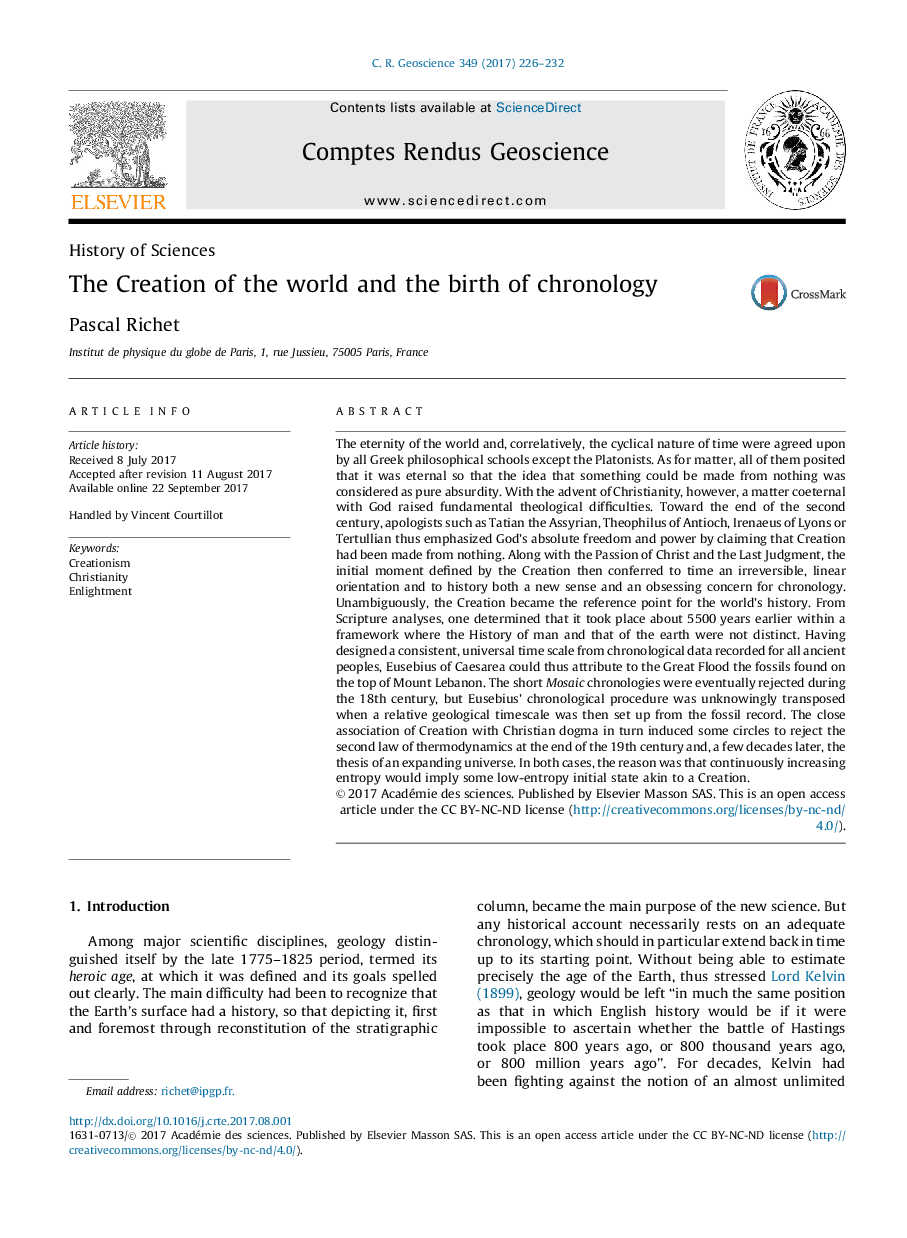ترجمه فارسی عنوان مقاله
ایجاد جهان و تولد کلاسیک
عنوان انگلیسی
The Creation of the world and the birth of chronology
| کد مقاله | سال انتشار | تعداد صفحات مقاله انگلیسی |
|---|---|---|
| 136978 | 2017 | 7 صفحه PDF |
منبع

Publisher : Elsevier - Science Direct (الزویر - ساینس دایرکت)
Journal : Comptes Rendus Geoscience, Volume 349, Issue 5, September 2017, Pages 226-232
ترجمه کلمات کلیدی
خلقت مسیحیت، روشنایی
کلمات کلیدی انگلیسی
Creationism; Christianity; Enlightment;

